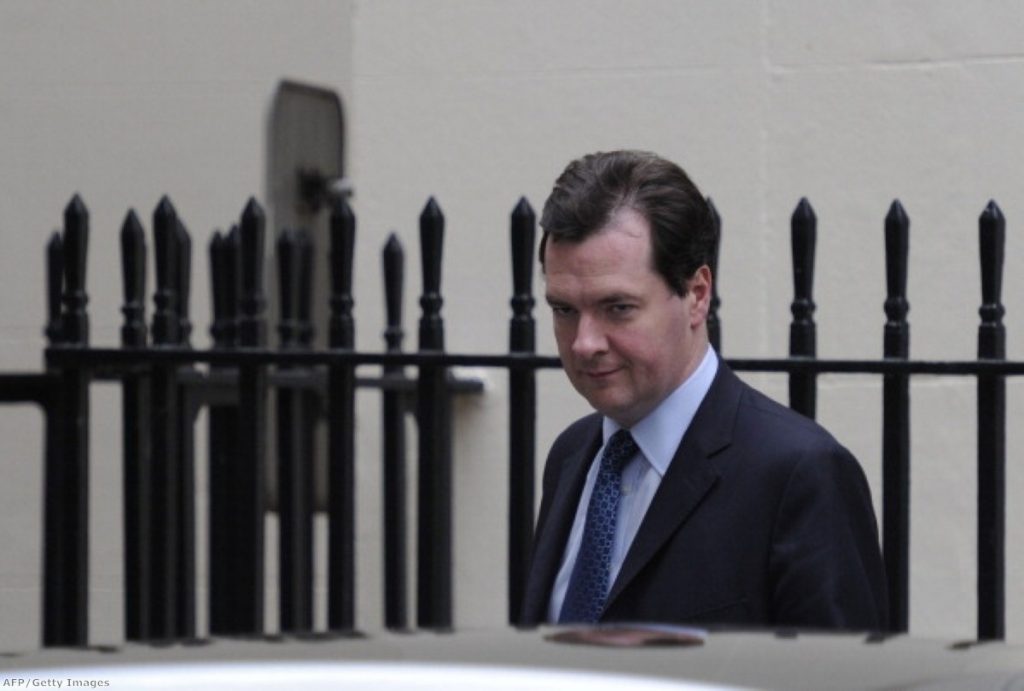The cruellest cut: Osborne returns to slash some more
George Osborne has insisted Britain is "making progress towards an economy that prospers" – despite outlining limits to public spending for a period which was originally supposed to mark the end of austerity.
Belt-tightening measures are now expected to last well into 2018, but today's announcement just cover the 2015/16 financial year when the new government is establishing itself after the next general election.
The chancellor has cut another 2.7% from government departments' budgets, amounting to £11.5 billion. Of that £3 billion is being shifted to new capital spending focusing on transport infrastructure.
The move comes three years after the comprehensive spending review, when Osborne forecast that the UK economy would be growing by 2.9% this year.


Instead, growth is extremely sluggish and ministers now face having to find even more cost-costing measures to implement in already cash-starved departments.
"We have applied three principles to the spending round I set out today," Osborne told MPs.
"Reform: to get more from every pound we spend.
"Growth: to give Britain the education, enterprise and economic infrastructure it needs to win the global race.
"And fairness: making sure we are all in it together by ensuring those with the broadest shoulders bear the largest burden and making sure that the unfairness of the something for nothing culture in our welfare system is changed."
The victors
The coalition has ring-fenced health, international development and school funding.
Welfare will not be cut any further than already outlined but a cap is being imposed which will impose a "limit on the nation's credit card".
Funding for MI5, MI6 and GCHQ is to rise with a 3.4% increase, despite the ongoing row over the surveillance of British citizens' electronic communications.
Business secretary Vince Cable escaped with only a six per cent cut to his budget, with the Treasury going easy on his department so it can help spark growth in the British economy. Cable has also won a nine per cent boost to capital investment, with the bulk going on science spending.
The arts have also done surprisingly well, with a five per cent cut significantly less than many Tories had been calling for.
The state pension conundrum
Osborne dealt with his biggest headache, the basic state pension, by exempting it from the overall welfare cap. As Tory election strategist he is keen to make political ground over Labour's inclusion of the pension in the welfare cut, because it allows the party to highlight how the opposition plans to cut the basic state pension in real terms.
The state pension bill is due to rise from 5.6% of GDP in 2016/17 and the price of the system is set to rise by £40 billion over the next 50 years.
In comparison, cutting winter fuel payments or TV licences for pensioners is likely to save just £3 billion.
Labour has already announced it will end the payments to the 600,000 pensioners who pay the 40p and 45p rates of income tax.
The losers
Local government faced heavy cuts of ten per cent, among the highest.
Plans are being put in place to end the duplication of local services, in an initiative called 'community budgets' which could save up to £4 billion a year.
Reforms to the system of automatic progression pay will bring further savings from public sector salaries, above and beyond those already secured by limiting public sector pay awards to one per cent.
Schools, NHS, prisons and police will all lose out on automatic pay rises for "time served" – but the armed forces are keeping this perk.
Other departments suffering cuts of ten per cent are the Ministry of Justice, the Treasury and Cabinet Office. The Department for the Environment, Food and Rural Affairs sees a 9.6% cut.
Osborne concluded: "The decisions we take today are not easy – and these are difficult times.
"But with this statement we make more progress towards an economy that prospers, a state we can afford, a deficit coming down; and a Britain on the rise."

